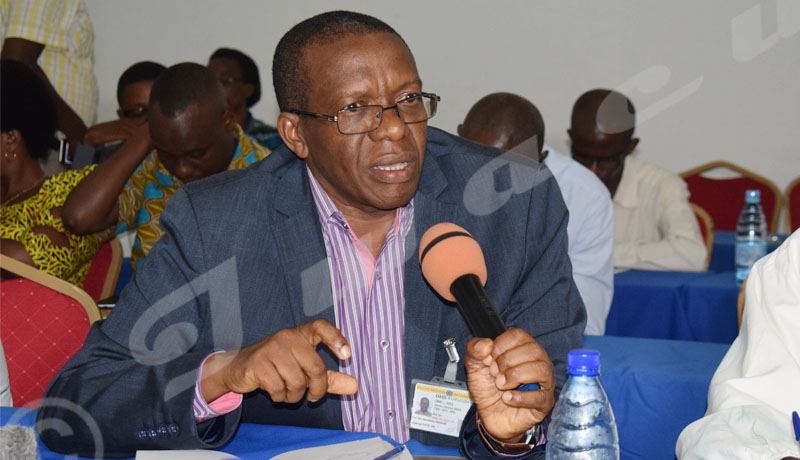In a workshop organized by the municipality of Bujumbura in collaboration with ACECI, the World Health Organization-WHO has said Artemisia has not yet been approved as a medicine for malaria.

Dismas Mbaza: “A scientific research must be done to prove the efficiency of Artemisia”
Dismas Mbaza, Program Officer at World Health Organization in Burundi has said researchers should send their results to the WHO expert team after conducting research on a given drug.
“This has not yet been done for the case of Artemisia,” he also says adding that the process of drug registration by WHO takes time,” he says
Mr. Mbaza says there are some malaria drugs which have been manufactured from Artemisia “but technical processes were used to extract medicines from the plant.”
For him, a scientific research must be done to prove the efficiency of Artemisia.
He says there should be an official regulation on the use of Artemisia in Burundi.
This Program Officer at WHO also says there should be a joint technical group of people from different sectors to carry out more researches on Artemisia effectiveness.
“Artemisia is a plant which prevents and treats malaria,” says Ginette Karirekinyana, Chairperson of the International Cooperation Ethics Advisory Agency-ACECI.
She says people who regularly take Artemisia cannot suffer from malaria. “It is effective at 98%,” she adds.
She calls on Burundians to grow Artemisia everywhere in the country.
“In former times, Burundians could treat malaria and other diseases using traditional drugs,” says Alain Diomède Nzeyimana, Deputy Spokesman for Burundi President.
He says those who invest in traditional medicine should be supported.
Artemisia is a plant that has been used in traditional Chinese medicine for more than 2000 years to fight against various tropical diseases including malaria.
On February 26th, The French Academy of Medicine warned against the dangers of using dried leaves of Artemisia for the treatment and prevention of malaria.



















 IWACU Open Data
IWACU Open Data

